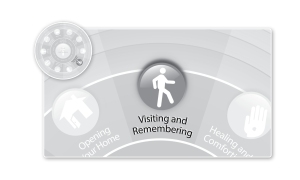 Karl Barth reminds us of the importance of visiting and caring for the prisoner, but John Chrysostom, the early church’s greatest preacher, emphasizes the centrality of the ministry in the life of each Christian.
Karl Barth reminds us of the importance of visiting and caring for the prisoner, but John Chrysostom, the early church’s greatest preacher, emphasizes the centrality of the ministry in the life of each Christian.
Chrysostom includes a prison ministry how-to in his Baptismal Instructions. Regrettably, that practice seems to have fallen by the wayside of ordinary Christian experience over the centuries, but Chrysostom’s reasons for emphasizing it are scripturally right on: he reminds us that each of us were in a type of prison when Christ first came and visited us. None of us were pure, refined, or upright and yet Christ didn’t refuse us. Thus, we have no right to refuse prison ministry on the basis that all the men there are “murderers, grave-robbers and purse snatchers”:
(Jesus) was not ashamed, but came and visited our prison. Though we were deserving of innumerable punishments, He brought us forth from there and led us into His kingdom and made us more resplendent than the heavens, so that we also might act in the same way according to our power. I say this for He declared to His disciples: ‘If, therefore, I the Lord and Master have washed your feet, you also ought to wash the feet of one another. For I have given you an example, that as I have done to you, so you also should do.’
If you’re looking for some good basic training in prison ministry, try reading Chrysostom’s Baptismal Instructions. It’s not meant to be an exhaustive list, but rather a common-sense beginning point for those of us who might claim to not know where to begin.
1. Take care of their physical needs by lending assistance.
Though they have begged all day, they have obtained not even the food they need; yet in the evening what they have collected painfully and toilsomely is demanded of them by their guards.
It’s not as easy (and perhaps not as necessary) to provide food and physical assistance to prisoners today as it was in Chyrsostom’s time. Still, we should expand our view of prison ministry beyond what happens in the prison building. That includes physically caring prisoners’ families, as well as caring for prisoners after their release.
2. Lend encouragement by heartening the trembling and fearful soul.
Even if we should be unable to bring in food or to help by giving money, we still can cheer the prisoners by our words and hearten the soul that is discouraged.
He even goes as far to say that our role may not only be to encourage the prisoner; God may have us visit the prison to encourage the guards!
3. Promise to defend the prisoner.
Chrysostom doesn’t elaborate on this point, but the Bible does. Consider passages like Psalm 146:7 and Psalm 66:33.
4. Cause the prisoner to seek after true wisdom.
Chrysostom’s suggestions are immeasurably valuable. Let me add a few more from our own time period and situation:
- Give a Christmas gift to a child of a prisoner. Of course, if all you do is send the gift, then it may not be a good way to engage in prison ministry. But if you follow through with your initial gift, you could have the opportunity to interact with the prisoner himself and to invest in the prisoner’s family over the long-term.
- Take a class with a prisoner. Pastor Foley and I always like to emphasize mutual giving and receiving in each Work of Mercy. To that end, why not take a theology class inside of prison with prisoners there? Project Turn is just that type of program. The genius of it is not that this class is offered inside of the prison, but that prisoners take the class alongside students from all walks of life. The academic standards aren’t lowered for anyone, but certain concessions are made to help those inside of prison. For example, all students (prisoner or not) are made to write their term papers with pen and paper instead of computer.
- Get involved helping prisoners acclimate to life after prison. If you’ve been incarcerated or are a police officer, there are restrictions that may prevent you from doing certain types of prison ministry. Still, you may be able to help someone who was recently released (or their family) with budgeting, conflict resolution, job hunting, friendship and spiritual encouragement. Check your local area for ministries that are already doing something similar.
- Visit a prison! If you have a family member or friend or learn of someone who is incarcerated, take the time, effort and inconvenience to visit them! You don’t always have to know what to do ahead of time. Chrysostom said,
Well, then, since we are aware of the treasure that lies available in prison, let us visit there continually; let us busy ourselves there; and let us turn in that direction our enthusiasm for the theater. Even though you have nothing to bring there, bring the good cheer of your words.
- Write a letter to a prisoner. Voice of the Martyrs has a program whereby you can encourage a Christian who has been imprisoned for their faith. VOM encourages you to share Scripture, prayers and encouraging words with these faithful men and women.











Reblogged this on Missio Links and commented:
Prison Ministry and Baptism – they went hand in hand in the mind of Chrysostom.